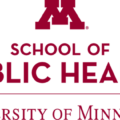The CUNY Graduate School of Public Health & Health Policy (commonly known as the CUNY School of Public Health, or CUNY SPH) is a public American research and professional college within the City University of New York (CUNY) system of colleges. The school is situated at 55 West 125th Street in Manhattan. CUNY SPH offers doctoral programs, master’s programs, several certificates, and faculty memberships in many of CUNY’s research centers and institutes. A core roster of over 50 full-time faculty is supplemented by additional faculty members drawn from throughout CUNY.
The graduate programs in public health at the CUNY SPH educate public health professionals to promote health and prevent disease among urban populations. These programs prepare students to work with the diverse populations living in cities and to serve in a variety of settings in government, non-profit organizations, businesses, and communities.
CUNY SPH at Hunter College offers a master of public health (MPH) degree, with specializations in community health education (COMHE), environmental and occupational health sciences (EOHS-MPH), epidemiology and biostatistics (EPI-BIOS), public health policy and management (HPM) and nutrition (NUTR-MPH). It also offers a Master of Science (MS) degree, with specializations in environmental and occupational sciences (EOHS-MS) and Nutrition (NUTR-MS). The MS degree in Nutrition (NUTR-MS) is an accredited didactic program in dietetics (DPD) and is designed for individuals seeking to become eligible to sit for the national registration examination in dietetics to become credentialed as a Registered Dietitian (RD). With the Hunter-Bellevue School of Nursing, it also offers an MS/MPH degree in community health nursing. This dual-degree program is described in the School of Nursing section of this catalog Nursing: Community/Public Health Nursing/Urban Public Health MS/MPH Dual Degree.
With the Graduate Center, the CUNY SPH offers a doctor of public health (DPH) degree, with specializations in community, society, and health, epidemiology, environmental and occupational health, and public health policy and management. Doctoral students in some CUNY Graduate Center Ph.D. programs, including sociology and psychology, can also earn an MPH while pursuing their doctorate.
The MPH degree is accredited by the Council on Education for Public Health (CEPH), the national educational accrediting body for public health programs in community health/preventive medicine. The EOHS-MS degree is accredited by the Accreditation Board for Engineering and Technology (ABET) and is geared towards students pursuing Certification in Industrial Hygiene. The NUTR-MS is accredited by the Commission on Accreditation of Dietetics Education (CADE), the accrediting agency of the American Dietetic Association (ADA).
During the fall and spring semesters, MPH and EOHS-MS courses are held once a week, Mondays through Thursday, in the late afternoon and evening. NUTR-MS courses are held during the day. MPH and EOHS-MS degrees can be pursued on a full or part-time basis. The NUTR-MS degree program is full-time. During the summer, there are a limited number of course offerings, which are held twice a week in the late afternoon and evening. During the January winter semester, there are a limited number of intensive courses which meet full days for one week or extended late afternoon/evening hours over a three-week period.
What is the acceptance rate at CUNY School Of Public Health?
The graduate programs at the CUNY SPH provide students with a broad multidisciplinary background in public, urban health and specializations in community health education, environmental and occupational health sciences, epidemiology and biostatistics, public health policy and management, and public health nutrition.
Each specialization prepares students for specific job opportunities. Graduates of the community health education program plan and manage community health programs and interventions to reduce social and behavioral threats to health. Graduates of the environmental and occupational health program anticipate, identify, assess and control community and workplace exposure that jeopardize the health of populations. Graduates of the epidemiology and biostatistics program conduct health studies and apply their findings to improve population health. Graduates of the public health policy and management specialization work as analysts, managers, and/or researchers to advocate for, administer, and/or analyze public health policies and programs. Public-health nutrition graduates promote the nutritional well-being of urban populations and manage community nutrition programs. SEE: MPH in Canada
The NUTR-MPH specialization includes courses that meet the requirements of the Dietetic Internship (DI), 1200-hour fieldwork, and didactic experience accredited by CADE. Students who are accepted into the DI and successfully complete the program are eligible to sit for the national registration in dietetics to become credentialed as registered dietitians (RD). Students who enter the MPH program with a Bachelor of Science degree in nutrition that fulfills CADE competencies may simultaneously work toward the MPH degree and dietetics registration, two credentials that will increase skills and employability. In general, Cuny School Of Public Health has an Acceptance Rate of 48% according to available data. Also See: Rutgers School Of Public Health Acceptance Rate





